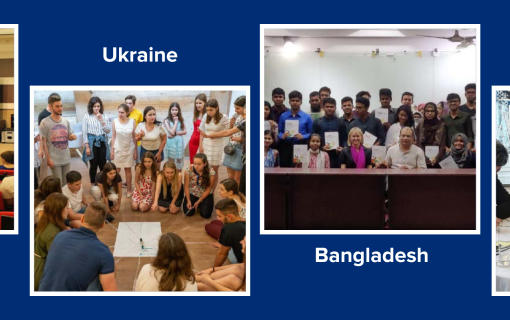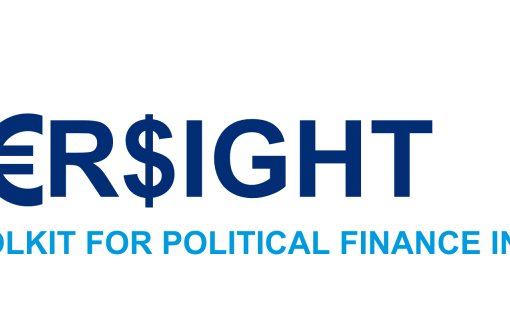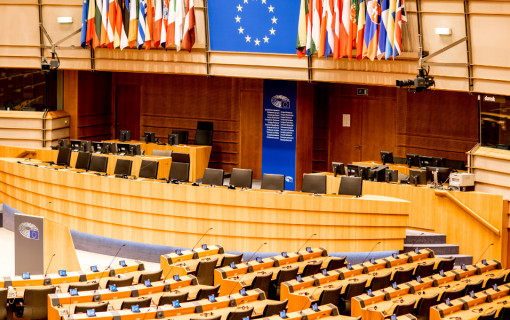Election Observation Mission: Kingdom of Thailand
Executive Summary
Election highlights. The November 17, 1996 parliamentary election in Thailand was the closest and most expensive in Thai history. Thirteen political parties competed for 393 seats and spent an estimated one billion baht ($400 million USD) on the election. The New Aspiration Party, led by Chavalit Yongchaiyudh, captured 125 seats; the opposition Democrats elected 123 members to the Parliament. A switch of300 votes would have caused the top two parties to have an equal number of seats in the Parliament. The election was marred by over 4,000 allegations of election law violations including vote buying and vote rigging. It was reported that at least a dozen people were killed or injured in election-related violence. Turnout was a moderate 62% of those eligible.
On election day, IFES Election Administration Consultant Paul DeGregorio visited 17 polling stations at sites in and to the south of Bangkok. In addition, the Consultant was afforded the opportunity to observe the counting process at Bangkok City Hall and at the Ministry of the Interior. International observation of this election was minimal except for several Cambodian officials and the IFES consultant, who concluded that there was strong evidence of a need for electoral reform. Both the press and the public appear to support such efforts to reform the system. Indeed, press reports indicate that failure to improve the system could lead to violence.
Discussions/meetings.
Several discussions were held before and after the election with key Thai election officials and also with U.S. Embassy officials. They included leaders of Pollwatch, the important Thai election monitoring group; key administrative personnel involved in the elections from the Ministry of the Interior; and Asia foundation staff.
Addressing Electoral Reform.
Under the Thai constitution (Section 115) an election commission had to be established by an act of Parliament by February 9, 1997. Several attempts were made in 1996 to pass a new election law. All were unsuccessful In December 1996 the formal process began to appoint a 99-member Constitutional Reform Commission charged with the responsibility of proposing constitutional changes--including electoral reforms--to the Parliament. The committee, which must complete its work in eight months, has administrative support from the Ministry of Interior. The new Prime Minister, Chavalit Yongchaiyudh, made a pledge before the election that if he won political reforms would be instituted within two years and elections held again perhaps as early as 1998.
Pollwatch.
In 1992, an organization was formed with the express purpose of ending the Thai system of corruption. This group was called Poll watch. Initially a non-government organization, Poll watch grew to become a government-funded entity which utilized tens of thousands of volunteers in each election to help draw attention to election irregularities, particularly the practice of exchanging money for votes, so as to discourage such practices. Today, Pollwatch is a very visible organization which is heavily involved in the movement to reform the electoral system. It reported nearly 4,260 cases of irregularities for the November 17 election period.
Technical recommendations.
Even though there were several charges of vote-rigging in a few areas, it appeared that overall, the Thai election was administered fairly. At the 17 polling stations which were observed, officials had adequate training and the counting process went smoothly. However, the following are a few recommendations for improvement:
• the polls should be opened longer (7 hours is too short);
• there are accessibility problems for the sick and elderly (there is no provision for early voting or voting at homes/hospitals);
• voter registration is a problem for people who come from the countryside to the large cities to work (particularly young voters);
• unused ballots should be kept more secure; training manuals should be given to everyone (not just the supervisors of polling stations);
• international and domestic observers should be written into the law.
Prospects for Future assistance by IFES.
The recent IFES mission generated strong support for a future role in providing technical assistance to Thai officials as they formulate proposals for electoral reform. Clearly the U.S. Embassy and Pollwatch officials would strongly support such assistance. The Director-General of Elections also expressed an interest in IFES assistance but also indicated that higher officials at the Ministry of Interior would have to be consulted. Many of the higher-level civil servants of the Interior Ministry appear supportive of international advice and assistance.
Technical Assistance. IFES could provide an on-site technical advisor who could work with the Constitutional Reform Commission. Such an advisor could provide legal suggestions and comparative analysis, and could act as an information resource. IFES could also provide support to officials from the Ministry of Interior who will be providing administrative support to the commission.
Civic Education. IFES could work with the Director of Elections for local administration and/or the Director of Political Party development to address the issue of vote-buying from a long-term perspective. IFES could suggest a plan to educate Thai citizens and political parties regarding the negative impact of vote-buying so that its use may be discouraged.
Attendance at the Manila Symposium.
During discussions with officials, the Election Administration Consultant distributed information regarding the IFES-sponsored Symposium on Asian Elections in the Twenty-First Century which was held in Manila from January 26-29,1997. Election officials from Pollwatch and the Ministry of interior expressed a strong interest in attending the conference to gain a broader understanding of the democratic election process throughout the region. IFES and the Asia Foundation funded the participation of three participants engaged in the Constitutional Reform process.
Read the full report.









